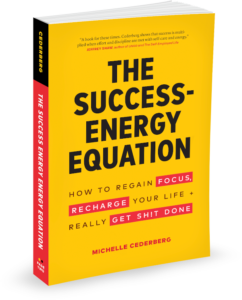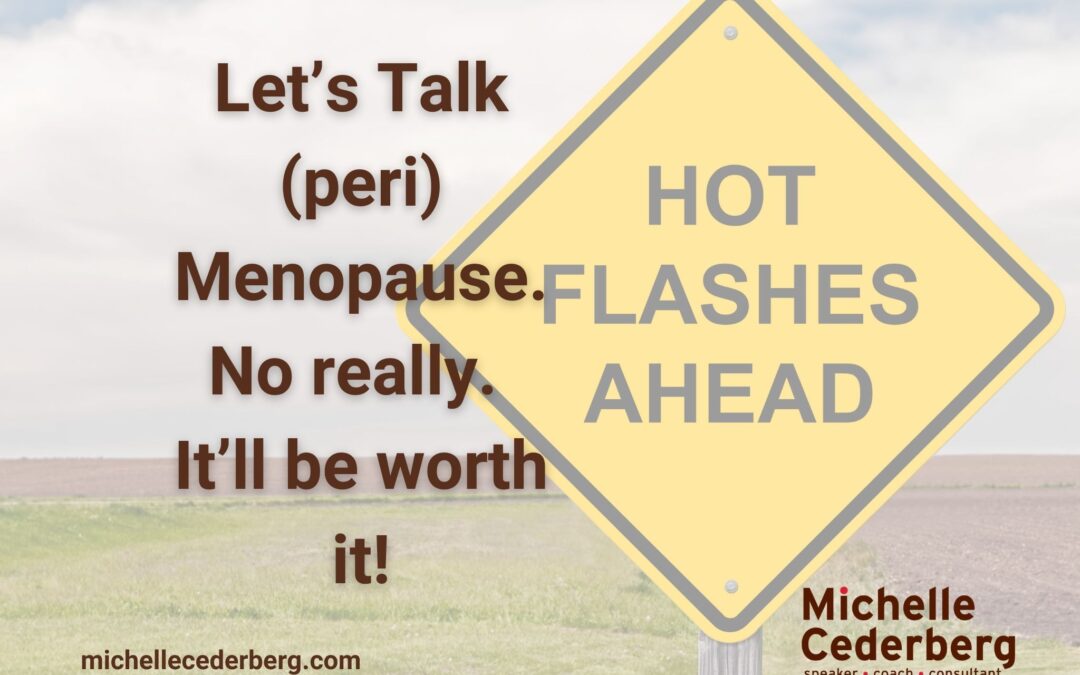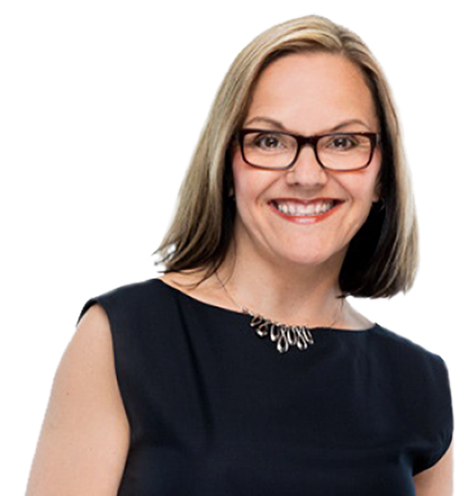“Don’t let age change you. Change the way you age.”
~ Unknown
It happens to all of us. We get older. And for women (and the men who love them) part of that journey involves navigating menopause and all its mysteries.
As a health expert I thought I knew enough about eating right, exercise and sleep to figure my way through the weight gain and energy drain, but there’s more to (peri) and menopause than that. I ended up enlisting help from a couple of my good friends who happen to know a lot about the topic, and I immediately knew that a) they know their stuff, and b) they can help a lot of women, so I had a conversation with them that I’m sharing with you here.
If you’ve questions about the wild, wild west of an aging woman’s wellness, this week I urge you to watch the video below, or share it with the aging women in your life. The video will shine a light on some of the facts and fallacies surrounding (peri) menopause. Plus, I also share how to connect with the gals at Helia Wellness.
Watch the video below, or read the transcript that follows.
Hey, Michelle Cederberg here, excited to chat with two dear friends and colleagues in the health field about a very important topic that everyone has questions about, and most people don’t know where to look for the answers. And I’m talking about menopause. Men, don’t hit pause because we all have someone in our life that is going through this and you might thank us for the information we are about to share with you today.
I want to introduce you to Tracy Fisher. She brings over three decades of knowledge and expertise to the health arena. She’s been a personal trainer, a fitness and weight management coach, a massage therapist, she’s currently a facilitator of the work of Brené Brown, she’s a CTI coach just like me, a behaviour change management specialist, a precision nutrition certified level coach, and on, and on. Her expertise is limitless, and her direct candour, which I love, offers one of the key ingredients for her clients to move the needle on their health.
Dawn Hart is a certified holistic nutritional consultant and fitness coach, specializing in rehabilitative exercise and pain management. She’s also a sought after speaker with over 20 years of experience which I can’t even believe. Working in the field of fitness and nutrition, she’s a recovering perfectionist who advocates for and knows first hand, that taking imperfect action is better than not taking action at all, so she speaks my kind of language in the small steps approach to living an energetic life.
I’ve known these two for 20 years, easily, which makes all of us qualified to talk about the topic of menopause. Me because I’m going through it, and Tracy and Dawn because they are here to help. I’m ridiculously excited because in going through the process of navigating my own menopause, I’ve come up across walls, and not been able to get the answers.
Michelle: So, Tracy and Dawn, what made you decide to shift your health expertise to helping women who are in peri and menopause?
Tracy: I would say largely because we are there ourselves. We started working with women many moons ago, but now being at the age and stage of life that we are at, our clientele is mostly now in our age demographic and coming to us with different symptoms that are largely perimenopausal in nature.
Dawn: And I think I’ll add to that Michelle, working in the fitness and wellness arena, you know the narrative is that if you work out set amounts, at set intensity, and you eat set amount of calories, in this kind of whole food diet, you’re golden. And unfortunately, although those are really important pillars to integrate and to embrace as part of our vitality plan, they’ll only carry us so far. Especially when those hormones start “peace it out” and leave the building.
Michelle: That was my challenge, and I regularly connect with Dawn and Tracy to have these conversations. I’m a regularly active person as most of my viewers know, and no matter what I was doing, I was finding that weight creep, and I was finding that my energy was going down, despite the fact that I was taking care of myself, and there’s nothing more demoralizing and frustrating than that. And with perimenopause as I’m learning, there’s way more to it than just night sweats and mood swings, there’s way more to it than that creeping weight gain, and so from your standpoint, what should women know about this stage of life that may surprise them?
Tracy: I think the biggest piece is that a lot of women come to us with symptoms that we know as perimenopausal or menopausal in nature, but they aren’t even aware that they are linked to perimenopause. One of the big things with perimenopause is that we can be in that phase of life for 10, even 15 years, prior to menopause.
Michelle: So, for instance, when I turned 39, I started to lose my eyesight. That’s a sign.
Tracy: Yes! And another of the signs you and I have talked about Michelle, is you go to try on a bathing suit, and you come out of the change room and you’re like “What the hell happened to my body?” Right? And so that’s one of the first thing a lot of women notice, but there’s so many more symptoms that can be affecting women.
Dawn: I think the biggest thing I would share with women is that you don’t need to settle just because this stuff is happening. There are so many things we can do to leverage balance in our bodies and it’s largely about focusing on lifestyle management.
Michelle: It’s been a lot of learning for me because I know a lot about health and wellness, and I couldn’t wrap my head around what was happening to my body. For many months I gave up. I was having joint pain, and I thought it was just a sign of aging. Also I was having really bad sleep problems, and I’m not just talking about hot flashes, I’m talking nerves and anxiety, and all that kind of stuff that I was putting down to “I’m stressed, I’m busy, I’m overworked, I’m getting old.” However, that’s not the case you’re telling me.
Tracy: No, and that’s one of the biggest messages we push back against is this idea that women are told over and over again when they seek out help that this is just the age and stage of life you’re in, and to just accept it. “You’re just going to feel like crap for the next 30-40 years,” which is not ok!
Michelle: And that gave me a great deal of relief once I started working with Dawn and Tracy to get the right kind of advice that gave me these step wise improvements in my sleep, in my joint health, in my energy, that surprised me, the health and productivity expert. It’s why I wanted to talk to Dawn and Tracy today because we sit back and we say “I guess this is it, I’ve reached menopause, there’s not much my doctor can do for me except prescribe hormone replacement therapy” and some other crazy stuff. And not to dismiss what the medical profession does, but it’s not enough.
Dawn: No, it’s not enough because the reality is Michelle, our bodies have immense healing capacity provided you feed them the right ingredients and tools. And if you just really pair it down and think about how women are feeling, we can all collectively speak to this, then absolutely, who wants to take on one more colossal diet, one more colossal plan, when you feel like you’re barely hanging on, and calling it a life. It really is those small incremental steps, day by day, that feed the body into this trajectory of healing and that’s where the magic happens. It’s just all those micro tweaks.
Michelle: And for any men that are listening, I said “men don’t hit pause” because this is a life change that impacts your relationships as well. My husband doesn’t know what to do with me half the time. It’s getting better, but this is why I also say, if you have women in your life, share this video with them because these micro tweaks can make a difference in your life as well.
Tracy: We have a lot of women that come to us and talk about relationship dysfunction because if they don’t understand that there’s anxiety and mood changes at play due to perimenopause, which is very common, then how can they explain to their partner what they need in those cases.
Michelle: And that it is legit and it is real, and what I’m going through right now is not made up. As you heard, my energy is drained, my joints are sore… this is real.
Tracy: It’s why we need to have these conversations.
Michelle: And that’s an interesting part of your approach. So, what do you offer in your health coaching that differs from the medical system for instance?
Tracy: We go largely from a lifestyle and behaviour change point of view. That’s where we always want to start even before women potentially go to hormone replacement therapy. These foundational pieces really need to be on point first before that’s even going to be effective. So it’s movement, it’s what we’re feeling in ourselves, it’s stress reduction, community (having that feeling of community,) and sleep (which is a big one.)
Michelle: You call that your Revive 5. Food for metabolic health, stress management, movement, sleep, and community. That’s a very interesting one for me.
Tracy: It’s a massive one and I think to our earlier point, we need to open up this conversation. Women are feeling very alone going through some of these symptoms not realizing they’re perimenopausal and other women are feeling it as well. I talked to a client the other day and she was feeling very alone in her symptoms. She was talking with five of her girlfriends and just finally said “You guys, this is how I’m feeling” and then they all chimed in and said “Oh my gosh, we’re experiencing this too. Maybe it’s got something to do with menopause.” So we need to have a supportive community to have these conversations and to support us because we should not be going through this alone.
Michelle: And we shouldn’t be going through it without recognizing that there is real help that is out there, also in the form of the two of you which I find great relief in.
Dawn: I would add to that Michelle, it’s real help that’s available to women focused on lifestyle management, but further to that, we pride ourselves in meeting our clients where they’re at so instead of giving them this blanket one-size-fits-all meal plan, supplement, movement schedule, and so forth, it really comes down to meeting the client where they’re at.
Michelle: So they come at you and they’re on hormone replacement and they’re saying “I love it and I need it,” you’re not going to say “Oh no, you can’t do that,” which is a comfort.
Dawn: Oh absolutely! The goal for us as health coaches and clinicians is to complement external care that the patient or client is receiving. So we’re working collaboratively in the best interest of the client because hormone replacement therapy has a place and is sometimes necessary for people.
Michelle: That’s exactly what they’ve been doing with me. We get together and we have conversations about my food intake, which I want to chat with you about really quickly in a moment, sleep, and the supplements that I have. And yes, I now have a supplement budget, but I’ll tell you right now that if I don’t buy my coffee when I’m out or I don’t buy an extra bottle of wine, it’s covered for the month. The difference in my energy and my vitality is huge.
Michelle: Ladies out there, myself included, one of the things that we need to do most, guaranteed, with our food, what is it Dawn?
Dawn: I would say, one general theme we see is that women under consume protein. We need protein, protein, protein!
Michelle: Carb queens is what we are. I love my pasta and my baked goods, but I need to eat less of that and eat more protein.
Tracy: And it makes sense that we do that because we’re looking for that kind of immediate hit, that dopamine hit, because a lot of our clients have no energy. They’re just getting through the day. So, of course they’re looking for these quick carbohydrates, absolute hiccups right, but when we can really get protein consumption up, which in turn lowers that carbohydrate consumption, we feel way better. Energy is higher, we sleep better, and there are so many positive offshoots of that.
Dawn: We kick cravings and that blunts hunger.
Michelle: And that’s the process that I am working through right now and I’m going to tell my viewers that it absolutely makes a difference. So what’s one piece of advice, my last question for you before we wrap this up, what’s one piece of advice you’d offer to women as they are navigating this stage of life from perimenopause all the way through.
Dawn: Mine personally would be to trust your body. You know your body best, and further, don’t settle with these narratives that this is all part of the aging process. There’s no dismissing our bodies are going to age and we’re not going to be crushing life like we did in our 20s and 30s, but that’s not to say you can’t feel vital, strong, and sexy in this chapter of life.
Tracy: Yeah I would say the say thing. You can crush life differently at this age and stage.
Michelle: Well, I don’t necessarily want to be crushing like the way I did in my 20s, but I want to be in my 50s and have the energy and the vitality, and not have to limit myself because of what my body is telling me.
Tracy: Yeah that’s right and I would say don’t give up hope. I think by the time we see a lot of our clients, they’ve given up hope. A lot of it is because women are largely under-served in the wellness arena, and in the medical arena, so they’re not getting the answers that they’re looking for, and then that just bleeds into acceptance. We want to push back on that. Don’t accept that. Advocate for yourself and your health, because you know what, you deserve it. We deserve it. Women really do.
Michelle: It’s been such a great shift for me because like I said, I do know a lot about health and wellness, but I also tell my audiences that this brilliant physical body and brilliant mind in it is capable of so much if we just feed it the right things, and I wasn’t giving my menopausal body the right things. Once I started doing that, it’s been making a big change and so I personally need to thank you, I want more people to know about you, and so if people do want to reach out to you, how do they do that?
Tracy: Our website is heliawellness.com, you can reach us on Instagram at heliawellness, and then we have a great Facebook community at the Hormone Project.
Michelle: And the Hormone Project they can find via your website where you’ll also be able to sign up for a 30-minute consult with Tracy and Dawn. I cannot tell you how insightful that would be. They’re starting a podcast and you can sign up for coaching with them. If you’re somebody that is struggling with the challenges of peri and menopause, may I suggest reaching out to my dear friends Tracy and Dawn
Until next time, I’m Michelle Cederberg reminding you you’ve got one chance to do this life, I say Dare to Live It Big, and if you’re a menopausal woman, dare to do it with as much energy and vitality and sexiness you can muster up, and these two girls can help.
♥ Don’t forget to sign up for my 6 Day Work-Life Reset. This is the perfect time of year to do it, and it’s free, so click the link, and get going!
♥ Sign up for my socials below, because there’s all sorts of interesting stuff coming down the pipe.
![]()
Get Social with me on:
![]()
Instagram
My Facebook Page
Twitter
LinkedIn
YouTube
Connect with me to chat about engaging virtual (or dare I say in-person) sessions for your team to boost resilience, manage stress and drive success, for post-pandemic productivity. And check out my virtual speaker demo here.
 To purchase your copy of The Success-Energy Equation: How to Regain Focus, Recharge Your Life, and Really Get Sh!t Done visit Amazon, or for a signed copy go to successenergybook.com. OR, contact me about bulk order discounts for your whole team! It’s also available as an audiobook wherever you download!
To purchase your copy of The Success-Energy Equation: How to Regain Focus, Recharge Your Life, and Really Get Sh!t Done visit Amazon, or for a signed copy go to successenergybook.com. OR, contact me about bulk order discounts for your whole team! It’s also available as an audiobook wherever you download!
Stay tuned for my new ONLINE Refocus & Recharge program using this book as your guide!
Michelle Cederberg, CSP, MKin, BA Psyc
CEP, CPCC, ORSC
Empowering today’s dreamers, leaders and go-getters to create the life and career they want.
![]()
www.michellecederberg.com
403-850-5589


